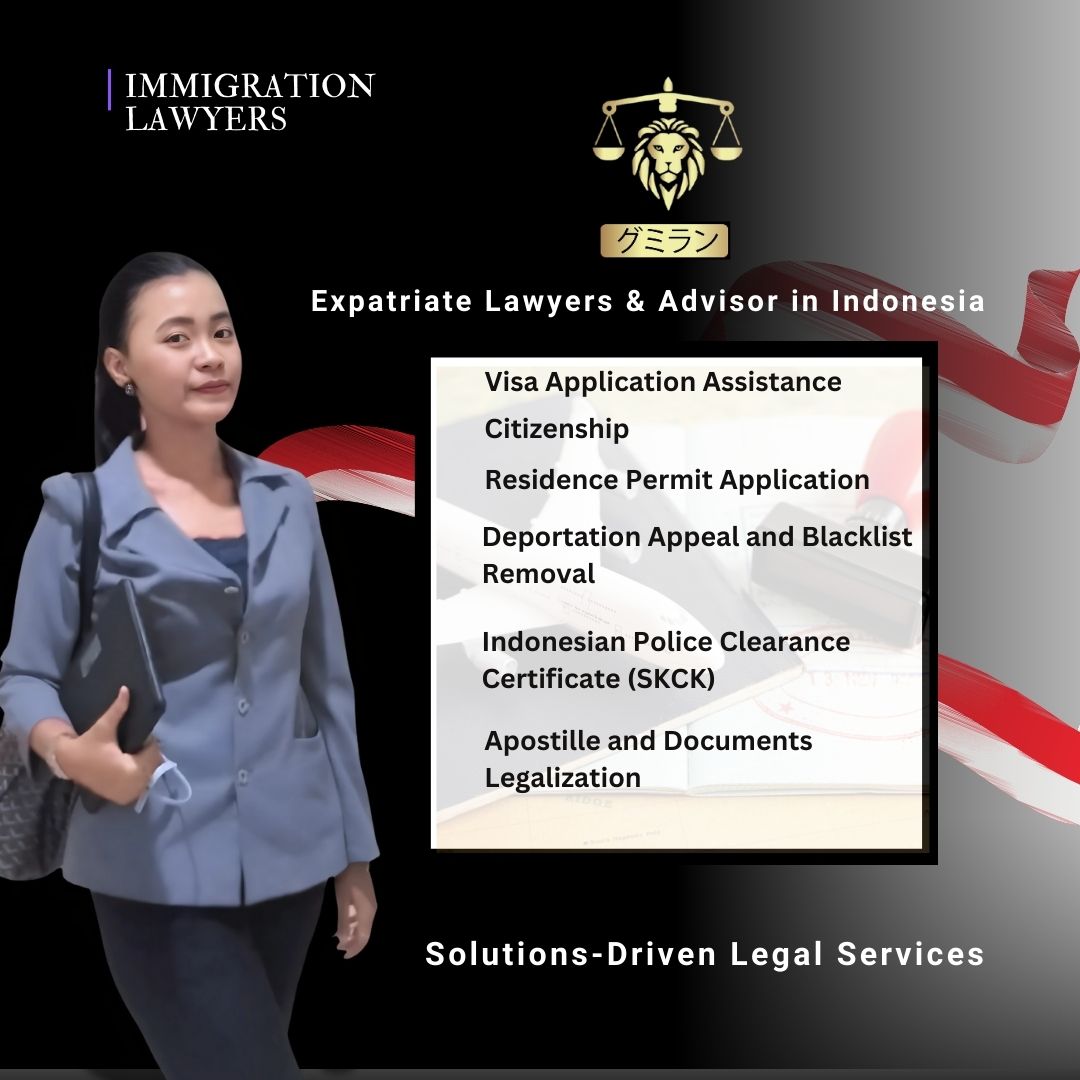A Complete Guide to Limited Stay Permit
In general, a Limited Stay Permit Card (KITAS) is a permit card given to Foreign Citizens (WNA) who will stay in Indonesia for some time. The definition of KITAS is regulated in the Regulation of the Minister of Law and Human Rights Number 29 of 2021 concerning Visas and Stay Permits (Permenkumham 29/2021) in Article 1 number 18 with the term Limited Stay Permit which explains that:
"A Limited Stay Permit is a permit given to a Foreigner to stay and be in the Territory of Indonesia for a limited period."
To get this card, you generally have to have a job in Indonesia and get sponsorship from the company where the Foreign Citizen works.
Types of KITAS
KITAS comes in several types according to the needs and goals of foreign nationals living in Indonesia.
Are you a professional working in a local company, a retiree enjoying your old age in Bali, or a foreign national couple married to an Indonesian citizen? Each of these categories has a specially designed KITAS.
Each type of KITAS has different requirements and processes, but all provide legal permission to stay in Indonesia.
Here are the three main types of KITAS that are commonly applied for by foreign nationals: work permit KITAS, retirement visa KITAS, and marriage visa KITAS.
1. Work Permit KITAS
A work permit KITAS is a document that must be owned by foreign nationals who want to work in Indonesia. Usually, the company where the foreign national works becomes the sponsor who helps apply for this KITAS. With this document, foreign nationals can work legally and get legal protection in employment relationships.
However, processing a work permit KITAS requires not only personal documents, but also a foreign worker permit (IMTA) and recommendations from related agencies. The process requires coordination between the sponsoring company and the Immigration Office.
2. Retirement Visa KITAS
For foreign nationals who want to enjoy retirement in Indonesia, a retirement visa KITAS is the ideal choice. Generally, foreign nationals must be over 55 years old and have a steady source of income to apply for this visa. Sponsors are usually travel agents or pension service providers who work with the government.
With a KITAS retirement visa, foreign nationals can stay for up to 1 year with the option to extend. This document is popular among foreign retirees who choose to live in Bali or other cities that offer a comfortable quality of life at a relatively low cost.
3. KITAS Marriage Visa
A KITAS marriage visa is given to foreign nationals who are legally married to Indonesian citizens. In this case, the Indonesian spouse acts as the sponsor. This document allows foreign nationals to live with their spouses in Indonesia, but does not automatically grant permission to work. The process of applying for this KITAS involves documents such as a marriage certificate, spouse's ID card, and other supporting documents. After several years with this KITAS, foreign nationals can apply for a KITAP to live permanently in Indonesia.
How to Make a KITAS ?
Taking care of a KITAS may seem like a complicated process, but with a clear step-by-step guide, everything can be done smoothly.This process begins with the application by the sponsor, the collection of documents, to the collection of the KITAS after it is issued. It is important to understand this flow so that you or your sponsor can prepare everything you need without any obstacles.Each stage of the process has a specific deadline and cost that must be met. Therefore, knowing where to apply for a KITAS, how long it will take, and how much it will cost will help you better manage your expectations and budget.
Steps to Apply for a KITAS
- Document Preparation: Collect documents such as passport, sponsor letter, and application form.
- Submission to the Immigration Office: The sponsor applies for a KITAS at the local immigration office.
- Biometric Process: The applicant undergoes fingerprinting, photo, and signature taking.
- Document Verification: The Immigration Office checks the completeness of the documents and issues a Limited Stay Permit (SITAS).
- Issuance of KITAS: After the SITAS is approved, the KITAS will be issued and ready to be collected.
- The granting, extension, and cancellation of KITAS for these parties is carried out by the Minister of Law and Human Rights or a designated Immigration Officer.
Parties Entitled to Obtain KITAS
- Foreigners who enter the Territory of Indonesia with a limited stay Visa;
- Children whose father and/or mother are KITAS holders at the time of birth in the Territory of Indonesia;
- Foreigners who are granted a change of status from a Visit Stay Permit;
- Captains, crew members, or foreign experts on ships, floating equipment, or installations operating in the waters and jurisdiction of Indonesia in accordance with the provisions of laws and regulations;
- Foreigners who are legally married to Indonesian citizens; or
- Children of Foreigners who are legally married to Indonesian citizens.
Period of Validity of KITAS
KITAS has various periods as stipulated in Article 75 of Permenkumham 29/2021 so that holders of this card do not need to extend their Visa every month, including:
- Maximum 5 (five) years;
- Maximum 2 (two) years;
- Maximum 1 (one) year;
- Maximum 180 (one hundred and eighty) days; or
- Maximum 90 (ninety) days.
Based on its implementation, the validity period of KITAS for 5 (five) years is given to foreigners for the purpose of a second home.
Furthermore, the validity period of KITAS for 1 (one) to 2 (two) years is given to foreigners in the following cases:
- Foreigners who are legally married to Indonesian citizens;
- Repatriation;
- Former Indonesian citizens;
- Working as experts;
- Investment;
- Clergy;
- Students/college students who are taking education;
- Merging with a husband or wife who holds a Limited Stay Permit.
- In addition, the validity period of KITAS for 90 (ninety) days to 180 (one hundred and eighty) days is given to foreigners in the following cases:
- Carrying out activities related to the profession by receiving payment;
- Carrying out activities in the context of making commercial films and having received permission from the authorized agency;
- Supervising the quality of goods or production;
- Conducting inspections or audits at company branches in Indonesia;
- Providing after-sales services;
- Installing and repairing machines; Carrying out non-permanent work in the context of construction;
- Holding art, music and sports performances;
- Holding professional sports activities;
- Carrying out medical activities; or
- Prospective foreign workers who will work in the context of skills trials.








